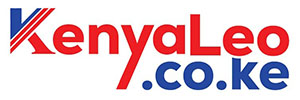
The Competition Authority of Kenya has approved the proposed acquisition of minority control of African Originals Limited, the ulimtate owners of the KO brand of alocoholic and non-alcoholic beverages, by Phoenix Beverages Limited unconditionally.
1. The Competition Authority of Kenya has approved the proposed acquisition of minority controlof African Originals Limited by Phoenix Beverages Limited unconditionally.
2. This approval has been granted on the finding that the transaction is unlikely to negatively impact competition in the market for manufacture, processing, distribution, and sale of alcoholic ciders, alcoholic spirits and non-alcoholic ready-to-drink (NARTD) beverages, nor elicit negative public interest concerns – the two key considerations during merger analysis.
3. Phoenix Beverages Limited (PBL) is a limited liability company incorporated in Mauritius. PBL is publicly listed on the Stock Exchange of Mauritius Ltd. PBL’s ultimate holding company is IBL Ltd (IBL), which is a publicly listed company incorporated in Mauritius.
4. PBL is involved in the manufacture, processing, distribution, and sale of alcoholic and nonalcoholic beverages, but has no operations in Kenya. However, through IBL, the acquiring group
directly and indirectly control several undertakings with operations in Kenya, including its affiliate Naivas Limited.
5. African Originals Limited is a private company limited incorporated in England and Wales. It controls an entity in Kenya, Savannah Brands Company Limited, that manufactures, processes,
distributes and sells alcoholic and non-alcoholic beverages including Kenyan Originals (KO)Alcoholic Fruit Cider, Kenyan Originals Gin, and Kenyan Originals Iced Tea and Tonic.
6. The proposed transaction involves the acquisition of a minority controlling stake (28.15%) of
African Originals Limited’s ordinary shares by PBL, alongside minority controlling rights relating to, among others, budgets, annual business plans, and appointment of senior executives.
This will result in de facto control.
7. The transaction, therefore, qualified as a merger within the meaning of Section 2 and 41 of the Competition Act No. 12 of 2010. The Act stipulates that a merger, or takeover, may occur when an undertaking directly or indirectly acquires control over another business within Kenya. This
may happen through, among others, purchase/lease of shares, exchange of shares, or vertical integration.
8. Further, merging parties whose combined turnover or assets, whichever is higher, is over Ksh. 1Billion are required to seek approval from the Authority prior to implementing the proposedtransaction. The transaction between PBL and African Originals Limited met this threshold for mandatory notification and full analysis as provided in the Competition (General) Rules, 2019.
9. During merger analysis, and in order to determine the impact that a transaction will have on competition, the Authority identifies the relevant product market as well as the relevant geographic market.
10. The relevant product market comprises products/services that are interchangeable or substitutable by the consumer due to their characteristics, prices and/or intended use. Based on this criterion, the relevant product market for the proposed transaction is the market for the manufacture, processing, distribution, and sale of alcoholic ciders, alcoholic spirits and nonalcoholic ready-to-drink (NARTD) beverages.
11. It is noteworthy that the activities of the acquirer’s affiliate, Naivas Limited, and the target are vertically integrated since Savannah Brands Company Limited supplies the supermarket chain with products.
12. Determination of the relevant geographic market involves interrogating the area in which merging parties undertake the business and in which competition conditions are sufficiently similar. With regard to the proposed transaction, the target sells its products throughout the country. Therefore, the relevant geographic market is national.
i.Market for Alcoholic Ciders in Kenya
13. Cider is an alcoholic drink made from fermented apple juice. Ciders are distinguished from wine by their lower alcohol content and higher natural sugars. Further, the production lead-time for ciders typically is shorter.
14. Some of the manufacturers and/or suppliers in the alcoholic cider market in Kenya include East African Breweries PLC (EABL) which produces Tusker Cider & Sikera, Kenya Wine Agencies Ltd (KWAL) which produces Savannah and Hunters, and the target – Kenyan Originals (KO) Ciders. The estimated market shares for the players and brands of cider according to data provided by the parties is as indicated below.
15. As earlier indicated, the target is in a vertical relationship with Naivas Limited, which is engaged
in retail distribution and sale of alcoholic and non-alcoholic beverages, among other
commodoties.
16. Although the target and Naivas are vertically intergrated, none of them holds a dominant position or has ability to exercise market power in both the upstream and downstream markets since there have effective competitors. Therefore, there is no incentive to foreclose supply of targets products to other retailers or customers.
ii)Market for Spirits in Kenya
17. Spirits are alcoholic beverages produced through distillation of wine, fermented fruits, or grains.
Due to distillation, the spirits’ alcohol content is much higher than that of most wines and beers, typically ranging between 20% and 50% alcohol by volume (ABV). The spirits segment is further divided into various sub-segments: gin, rum, whisky, vodka, brandy, liqueurs, among others.
18. Spirits are the second most popular alcoholic beverage in Kenya, accounting for approximately
27% market share. Some of the manufacturers and/or suppliers of alcoholic spirits market in Kenya include EABL, Keroche Breweries Limited, Anheuser-Busch In Bev NV, London Distillers Kenya Ltd, Distell Group Ltd, and KWAL.
19. Data from the Kenya National Bureau of Statistics (KNBS) 2023 Statistical Abstract estimated the earnings of the alcoholic spirits industry at KES 1.9 Billion in 2022. The target’s market share inthe spirits market was less than 1% in 2022.
20. The value of annual sales arising from the vertical relationship between the target and Naivas with regard to spirits is 12%. When coupled with the retailers’ market share in terms of alcoholic beverage sales in the country, the Authority is of the view that the proposed transaction does not raise competition concerns, specifically regarding foreclosure in the spirits market.
iii)Market for NARTD Beverages in Kenya
21. NARTD beverages refer to beverages that do not contain alcohol, excluding hot drinks,
powdered drink mixes, and syrups. The market for NARTDs can be segmented into ccarbonated and non-carbonated soft drinks. This market in Kenya is characterized by a mix of multinational corporations and local companies. The market is hihghly diverse, with various products catering to different consumer preferences.
22. The Coca-Cola Company has the largest market share of NARTDs in Kenya, accounting for approximately 70% of the market followed by Kevian Kenya (4.76%); Excel Chemicals (2.29%); Del Monte (1.42%); Highlands (1.59%); Suntory (0.48%), and others (19.46%), including the target’s brands.
23. According to the parties, the vertical relationship between the target and Naivas accounts for approximately 5% of its total annual sales of KO Iced Teas and Tonics. When coupled with the retailers’ market share in terms of alcoholic beverage sales in the country, the Authority is of the view that the proposed transaction does not raise competition concerns, specifically regarding foreclosure in the NARTD market.
24. One criterion of assessing a merger’s impact on competition is the post-merger market share of the undertakings involved in the transaction. Based on the Authority’s assessment of applicable
market shares, the structure and concentration of the market in the marekts for alcoholic ciders,
spirits and NARTD beverages will not change as a result of the proposed transaction.
25. During merger analysis, the Authority also considers the impact that a proposed transaction will have on public interest. Public interest in this case refers to various economically-inclined concepts that, when considered, protect the welfare of the public. In the Competition Act, some
of the public interest considerations are;
a) extent to which a proposed merger would impact employment opportunities;
b) impact on competitiveness of SMEs;
c) impact on particular industries/sectors; and
d) impact on the ability of national industries to compete in international markets.
26. As per the parties’ submissions, this transaction will not elicit negative public interest concerns. Specifically, there will be no loss of employment. All the target’s 87 employees will be retained.
Premised on the above, the Authority approved the proposed acquisition of minority control of African Originals Limited by Phoenix Beverages Limited unconditionally.





